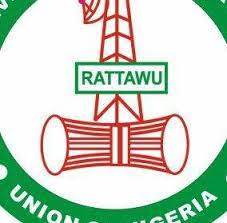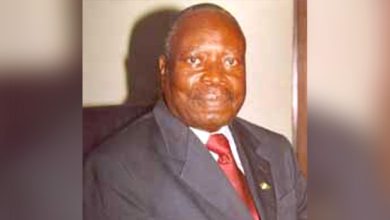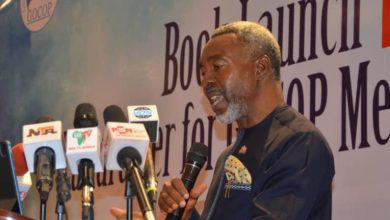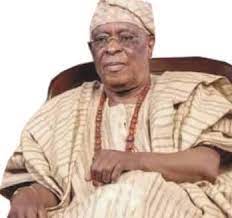
For the record: Paper on Gender in unionism challenges and experiences presented at the Radio, Television, Theatre and Art Workers Union (RATTAWU) Lagos council training programme on 22nd April, 2021 by Olufunke Fadugba (JP)
PROTOCOLS
Let me appreciate the organisers of the programme for finding me worthy to be invited to make this presentation.
I want to start this presentation by laying some basis such as the meaning and application of gender.
Gender ordinarily denotes the social and cultural role of each sex within a given society. The world Health Organisation (WHO) defines gender as the socially constructed characteristics of women and men such as norms, roles and relationships of and between groups of women and men.
Philosopher Michel Foucoult sees gender “as a set of names and labels characterizing the female as a woman signifying someone who is weak, emotional and irrational as well as incapable of actions attributed to a man.”
Gender can also be viewed in terms of physical, psychological and social characteristics. Physical differences between genders in terms of size and anatomy are visible but same cannot be said of the psychological differences between the male and female genders.
These psychological differences although minute in size seem meaningful when combined to generate or lead to awesome consequences. These differences can be biological (genetic/nature) or cultural/social (nurture).
In building blocks of individual personality comes the “Big 5” personality traits as propounded by personality psychologists. In essence, whether one is a male or female, our personality will manifest the traits of Openness – which are people with broad range of interests, curious about the world, eager to learn new things and enjoy new experiences. They are much more adventurous and creative.
Conscientiousness – people within this category tend to be more organized, they plan ahead and are thoughtful of how their behavior affect others

Extraversion: They are outgoing and derive additional energy in social situations. That is they are energized and excited when they are around other people.
Agreeableness: Personalities who are high on agreeableness are more co-operative while those low in this trait are more competitive and sometimes even manipulative.
Neuroticism: This 5th personality dimension comprises people who undergo mood swings, anxiety, irritability and sadness. Those low in neuroticism are more stable and emotionally resilient.
Researchers have found that both biological, environmental, cultural and social forces shape who we turn out to be and how we behave. Besides, to make a headway in unionism , the individual needs to do an introspect in ascertaining his or her predominant traits .
Unionism: Unionism is the championing of the cause(s) of workers and a counter force against the over bearing powers and exploitative tendencies of employers within a work place. It comprises the policies and practices of trade unions, especially those concerned with protecting and championing the rights of workers.
What then is the relationship between gender and unionism?
It is important to note that the patriarchal ideology and orientation nurtured by society have far reaching impact as they put women away from the public space..
Akinyode – Afolabi and Arogundade (2003) indicate that the perception of women about politics/activism as a dirty game and the fear at the thought of violence has further kept women away from the mainstream where their contributions are more needed.
It is expected that the trade union as a family of workers with no bias for tribe, sex, religion or ethnic hegemony, should be a platform for men and women to actively and effectively participate in trade union. activities .But do we have such family setting in our unions?

The way and manner men and women perceive and react to various work variables, or circumstances, terms and work conditions are affected by the earlier identified psychological and physical human differences.
Women in their various endeavours including unionism have had to cope with issues of child care and domestic responsibilities more than their male counterparts with such instances making women more vulnerable to the risk of problem at work.
It is therefore expected that women should embrace unionism better than men because the unions will provide safeguard against various employment risks.
Challenges: Since the Beijing conference in 1995 and other conferences and campaigns across the globe to promote and enhance women participation, there have been progress recently in gender representation unlike the age long widespread gender discrimination.
However there are still some challenges inhibiting the expansion and scope of gender representation in unionism.
*Time –frame: The time frame for union activities tend to be in conflict with requirement of domestic chores and caring activities. For instance nocturnal meetings, weekend conferences and days of convention conflict with other domestic obligations of women.
*Patriarchal handling of issues: it has also been discovered that some men tend to support women activism to the extent that it will enable the female to cope with double-burden e.g to provide financial succor or serve as “lubricants of the struggle”
*Structurally too, unions tend to have patriarchal structure with the processes and positions scripted to give the male a sense of entitlement thus subjugating women perpetually to their wish.
Corruption of values of unionism: The general social cankerworm called corruption has eaten into unions to the extent that the driving force is no longer the desire to serve but an avenue to get easy fund, rub shoulders with the powers that be and status symbol. The perceived failing relevance of unions to achieve its collective bargaining goals due to corrupt tendencies is also seen as deterrent to genuine desire to participate in union activities.
*Problem of stereotype: There are certain stereotyped ideas about women’s abilities, preferences and roles despite the strong view that women can be equally efficient and more committed to developmental goals. Union activities or hostile responses from male members tend to discourage women from participating in union activities.
*Overcoming challenges: For us as women to overcome the identified challenges and others, here are some tips

We need to have confidence in ourselves
There is need for creativity. Be creative either as a participant or a leader at any level
Be emotionally intelligent: This implies being emotionally strong and strive to be role model for others. In the face of unbelievable difficulties or betrayals be strong and demonstrate unwavering courage.
Take purposeful actions: Avoid procrastination and tap into your inner mind to creatively express yourself i.e know what to do, how to do it and how to push it to a logical end in a consistent manner.
Never give up in the face of failures and losses, stay optimistic. Ignore activities that do not project your highest goal.
Create a unique style: Don’t copy others in a copy and paste manner but rather adapt styles and make them unique, authentic and personalized in their manner of usage to express your ideas.
Hardwork: Success has been described as an iceberg. For those women who have excelled like Dora Akunyili, Ngozi Okonjo-Iweala , to mention a few, we only see the tip of their iceberg – the success, and not the underlining level of hardwork they put behind their successes.
Exceptional ability to communicate: Having this exceptional ability to communicate, a unionist will foster unity within the rank and file and checkmate misinformation or falsehood or fake news that could derail a well thought out plan
Having a sixth sense: This allows a unionist, irrespective of gender to carve a niche for herself to have her own style and be a trend setter though persuasion and passion.
Be persistent: Demonstrate faith in your ability to succeed even when others think you are failing.
Acquire leadership/negotiation skills: Remember the Shakespeare phrase that some are born great, some achieve greatness and some have greatness thrust upon them: you can achieve greatness through acquisition of necessary skills
.Conclusion: While I will prefer to speak more on my 2 decades of experiences as a unionist during the question and answer session, I want to conclude by saying manifestation of leadership qualities are situational and dependent on the internal and external forces that make up the configuration of such organisations.
So also, participation within labour or general environment is situational, historical , and influenced by constant changes in the economy.
Thank you for this opportunity.
REFERENCES
Rogers, Rosie, “What qualities make an effective teacher labor union leader?” (2017). Thesis and Dissertations. 822. https://digitalcommons.persperative.edu/etd/822.
7 characteristics of Hugely successful female leaders (updated) September 22, 2015.
Hotchkiss, J. and Pitts .M. (2003). The role of labor market intermittency in explaining gender wage differential:, The American Economic Review, 97 (2), pp.417-421.
International Labour Office (2000). The Role of Trade Unions in Promoting Gender Equality. Report of the ILO-ICFTU Survey. Geneva: ILO Gender Promotion Programme.
Akiyode-Afolabi, A., & Arogundade, L. (2003). Gender Audit 2003 Election and Issues in Women’s Political Participation in Nigeria. Lagos: Women Advocates Research and Documentation Centre (WARDC).
Jang KL, Livesley WJ, Vernon PA. Heritability of the big five personality dimensions and their facets: a twin study. J Pers. 1996;64(3):577-91.
Mrs Olufunke Fadugba is the Chairman,Editorial Board,Penpushing Media
FOOTNOTE: You want to share story with us? You want to advertise with us? You need publicity/live coverage for product, service, or event? Contact us on WhatsApp +2348073463653 or email penpushing@yahoo.com







